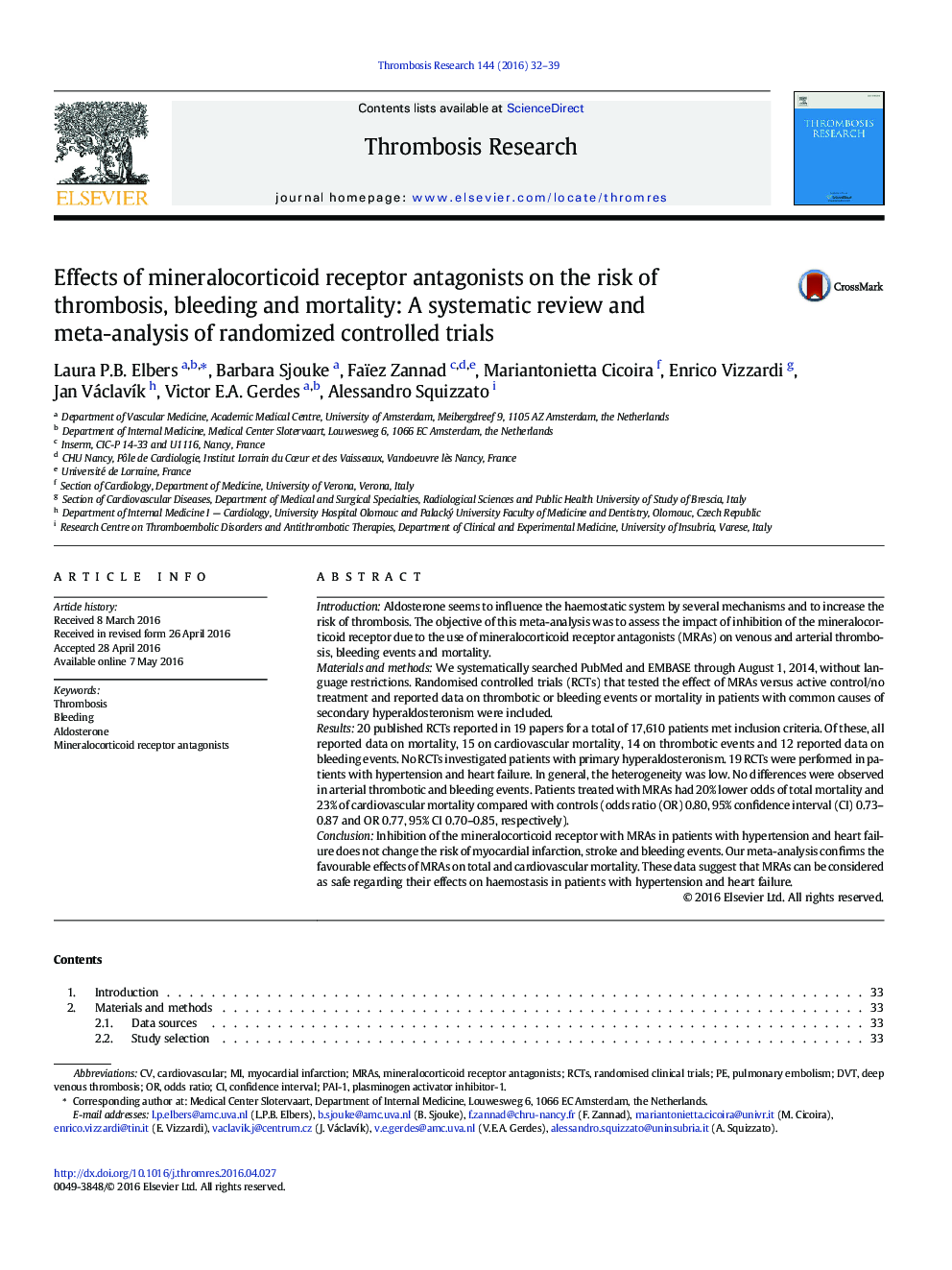| Article ID | Journal | Published Year | Pages | File Type |
|---|---|---|---|---|
| 3026821 | Thrombosis Research | 2016 | 8 Pages |
•The effects of mineralocorticoid receptor antagonists (MRAs) were reviewed.•MRAs did not change the risk of myocardial infarction, stroke and bleeding events.•The favourable effects of MRAs on mortality risks were confirmed.•MRAs seem safe regarding haemostatic effects in hypertension and heart failure.
IntroductionAldosterone seems to influence the haemostatic system by several mechanisms and to increase the risk of thrombosis. The objective of this meta-analysis was to assess the impact of inhibition of the mineralocorticoid receptor due to the use of mineralocorticoid receptor antagonists (MRAs) on venous and arterial thrombosis, bleeding events and mortality.Materials and methodsWe systematically searched PubMed and EMBASE through August 1, 2014, without language restrictions. Randomised controlled trials (RCTs) that tested the effect of MRAs versus active control/no treatment and reported data on thrombotic or bleeding events or mortality in patients with common causes of secondary hyperaldosteronism were included.Results20 published RCTs reported in 19 papers for a total of 17,610 patients met inclusion criteria. Of these, all reported data on mortality, 15 on cardiovascular mortality, 14 on thrombotic events and 12 reported data on bleeding events. No RCTs investigated patients with primary hyperaldosteronism. 19 RCTs were performed in patients with hypertension and heart failure. In general, the heterogeneity was low. No differences were observed in arterial thrombotic and bleeding events. Patients treated with MRAs had 20% lower odds of total mortality and 23% of cardiovascular mortality compared with controls (odds ratio (OR) 0.80, 95% confidence interval (CI) 0.73–0.87 and OR 0.77, 95% CI 0.70–0.85, respectively).ConclusionInhibition of the mineralocorticoid receptor with MRAs in patients with hypertension and heart failure does not change the risk of myocardial infarction, stroke and bleeding events. Our meta-analysis confirms the favourable effects of MRAs on total and cardiovascular mortality. These data suggest that MRAs can be considered as safe regarding their effects on haemostasis in patients with hypertension and heart failure.
